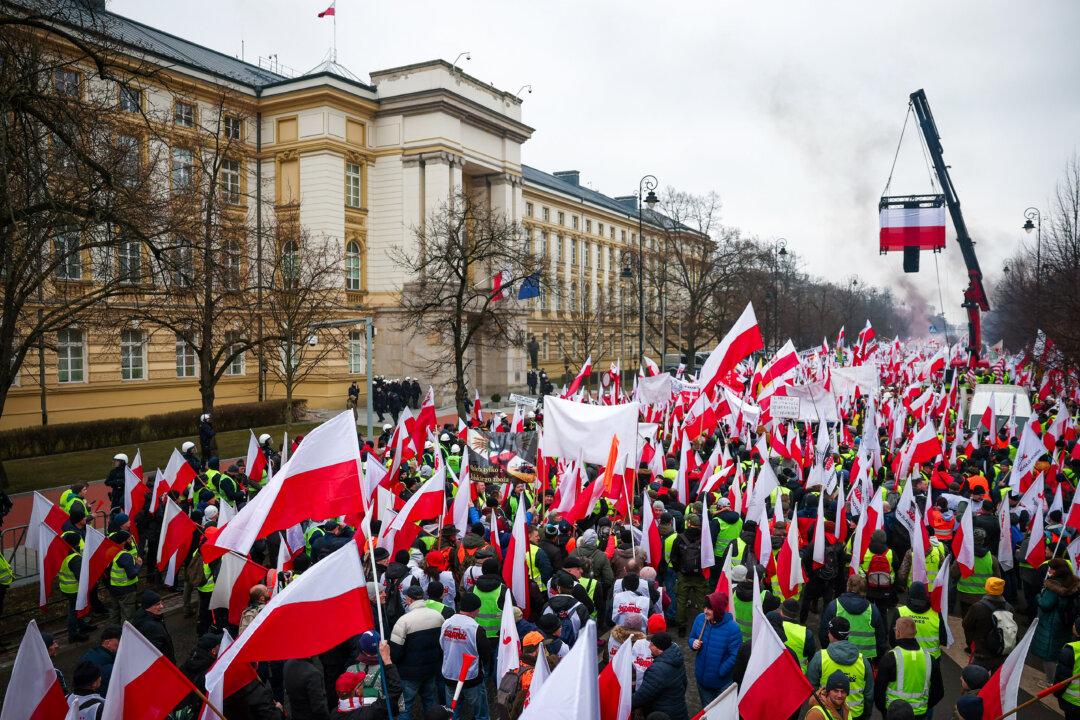Protesting farmers clashed with police outside the Parliament building in Warsaw, Poland’s capital, on March 6, with police using pepper spray and accusing some participants of violence against security forces.
Thousands of Polish farmers also protested outside the prime minister’s office as they demanded a halt to cheap imports and European Green Deal regulations they say harm their livelihoods.





